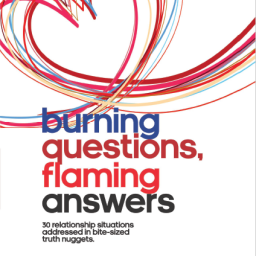
This week, after a post-work hangout with some new acquaintances, I made myself sing out loud to some empowering, worship music on the way home (and unknowingly to the dismay of other commuters, who were treated to my voice on their drive home). You see, what should have been a time of unwinding, left me feeling like I was under a blanket of heaviness. Our conversations were steeped in a general mood of despair and bleakness; and by the end of the evening, the consensus was the futility of human relationships, morality and hope. I could discern that I was in an unhealthy mental space which I needed to address immediately. They had succeeded in stressing me out.
A psychosocial paper describes coping strategies as the specific efforts that people employ to master, tolerate, reduce, or minimize stressful events. They suggested several distinctions of coping strategies. One distinction is the problem-solving strategy in which you do something to alleviate the stressful circumstance. This may be finding a different job, moving to a place with a shorter commute, or even choosing to remove yourself from the company of people who stress you out. Another distinction is the emotion (or psychological) focused coping strategy in which we try to regulate the emotional effects of stressful events. This is where singing along to worship music comes in for me. Other people prefer to talk through stressful situations; we pray, we meditate, we listen to certain music, we write and sometimes we even exercise.
These two strategy types (problem-solving or emotion-focused) imply that you are at least actively addressing your situation in one way or the other. In reality, most people employ a mix of strategies to handle situations. For instance, while you may be job-hunting (problem-solving), you could also pick up playing football at night to deal with the stress of your job (emotion-focused). While you may be getting out of that toxic relationship (problem-solving), you may also be talking through it with a psychologist (emotion-focused). For me, while I may be jamming to worship music (emotion-based), I will probably be limiting the amount of time I spend in certain people’s company (problem-solving).
One important aspect of coping strategies is that they are typically conscious and purposeful. Especially in a city like Lagos (ranked third among the ten least liveable cities in the world in the 2018 Global Liveability Index), it is important to be deliberate about how we deal with stressors. Otherwise, we tend to fall into avoidant coping strategies, which typically lead people into activities such as alcohol dependence or mental states (e.g. withdrawal) that keep us from directly addressing stressful events.
Take a minute out for a mental exercise today; answer these questions –
- What stressful circumstances are you currently in?
- Can you do anything to change the circumstance? If yes, what can you do?
- What can you do to moderate the emotional or psychological toll the situation is having on you?
- What can be done in the heated moments of stress? Slow breathing? Counting to ten? A short prayer?
- What habits can you build to manage stressors before they even happen?
Do this today; do this tomorrow; do this as often as you can, and let us create healthier mental and physical spaces for ourselves.
Written by Ugonna Iheme




Great article
Thank you Ugonna
I love the practicality of the message contained in this article. Life, especially in Lagos (and Nigeria), is a harrowing experience whenever one is not intentional about devising a coping-strategy.
This is a timely piece for me as look forward to 2019 in LAGOS NIGERIA